Any team that is in its first year of competition is going to learn some lessons the hard way and take their fair share of lumps. Our rookie FIRST Robotics Team is no different as we have had a challenging journey to get where we are today. What started out as a challenge has grown into a process that has developed the minds of our young engineers.
Imagine knowing that you are going to compete in a sport, but you do not know what sport it is until the season begins. In fact, imagine the sport you are expected to compete in is a sport you’ve never seen before….that is what it is like to compete in FIRST Robotics. In robotics, the game concept isn’t announced until the first day of the season, which leads to a sprint to build your robot.
After spending 9 weeks designing, building, programming, debugging, and fixing our robot “Ignatius”, we headed to the Kansas City Regional Competition filled with confidence. That confidence quickly faded as we realized that our robot was filled with complicated problems that we did not foresee. As the competition continued, our placing tumbled and the look of shock on the face of the boys grew by the minute. It was a grueling 3 day competition that wore us out….but all was not lost. Yes, we returned to the Robotics Lab scratching our heads and collectively said “what happened???” in an overwhelming manner, but our students quickly realized that setbacks like this is what science is all about.
With our next competition just a few weeks away, our students knew they had to go back to the start with the robot, look at all of our resources, and determine what must be different when we go to Cincinnati for our next competition. Due to the generosity of Bishop Miege’s Robotics Team, we were able to find 4 new wheels for our robot. We also reached out to Lee’s Summit North’s Robotics Team and asked them if we could run through our business model with them to see if they had any suggestions. LSN gave of their time and it proved to be a tremendous benefit to our students as they scrapped the entire previous model and built a new one in a matter of days. We didn’t head to Cincinnati with brazen confidence or a lot of gusto, we simply headed east knowing that this competition was going to be different than the first because we believed in the changes we made to our robot.
When we arrived in Cincinnati, we had a plan. We knew we had an improved robot, but this time we had a team to support it. The communication had improved, students took responsibility for their obligations to the team, everyone was determined to contribute. This was a different team.
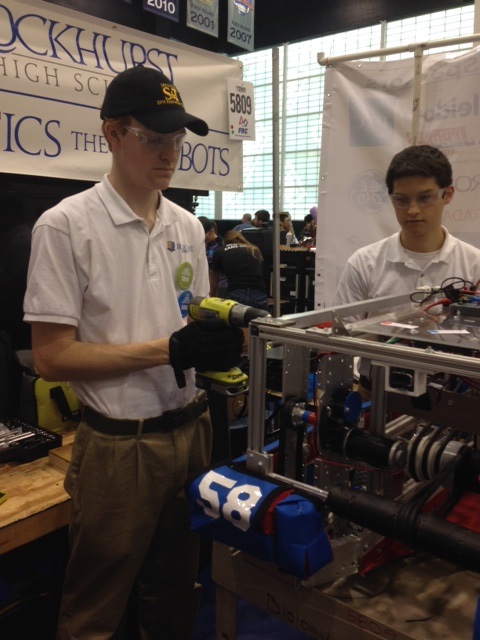
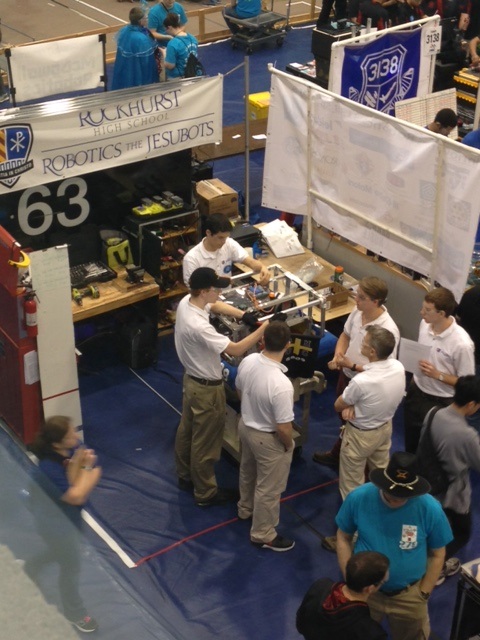
When you compete in FIRST Robotics competitions you are placed in a random grouping of 3 teams and you compete against another random group of 3. It is literally luck of the draw as to who you compete with…and luck did not go our way. We were constantly stuck with dysfunctional teams that could not contribute and thus our overall record suffered. However, individually it was clear that our robot was one of the top robots in Cincinnati. The students promoted our robot’s individual stats, showed people our robot and pit, shared our business model with others….they promoted their robot with great vigor. It would all pay off.
There are several awards that are handed out following each regional; the top 3 awards give teams an automatic ticket to the World Championship in St. Louis. Deep inside no one was sure what would happen….either we would receive an award and we could head to St. Louis or be shut out and our season would be over. When it came time for the emcee to announce the “Rookie All-Star” award, you could feel the anxiety over the team as we all held our breath. We all hoped that the changes we made would pay off……..and they did. We were named the “Rookie All-Star” team for the Cincinnati Regional, making the Jesubots one of the top rookie teams in the world. In just a few short weeks we will be heading to St. Louis for the FIRST World Championships….with some additional improvements to our program and robot.
What was different? Honestly, nothing. As is the case in science and engineering, we learned a great deal from our mistakes. We would not have been a Rookie All-Star team in Cincinnati without Kansas City being a colossal mess. Our students learned so much from their mistakes, understood what was expected of them, then made the necessary adjustments to improve. Simply stated, that’s how science works.
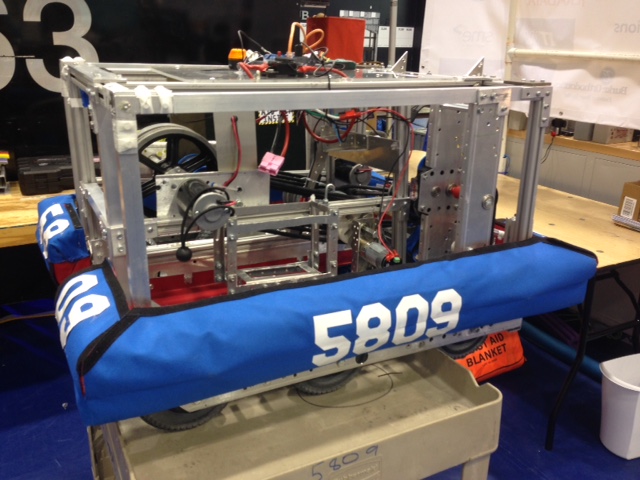


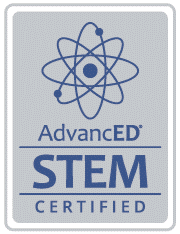
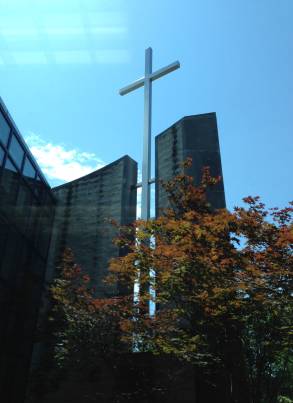
Comments